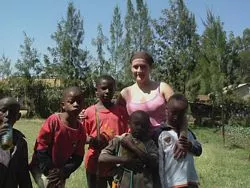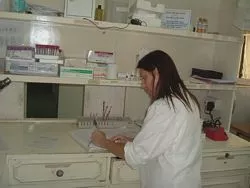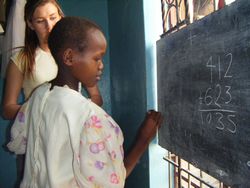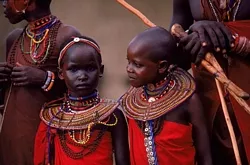Mission Trip » Mission Project » Short term Mission Trips
Mission Project: Advance Africa organizes mission trips to Kenya (Africa) for individual travelers, couples, families, students, researchers, and groups (churches, colleges, and student associations).Formal academic qualifications are not needed for most of the programs. All you need is a heart, and a passion for something.
We work directly with the projects where we send you and where your contribution will make a real and meaningful difference.

Mission Projects
Our mission trips are varied and include,
Mission Project Schedule
You can help for any duration and stay as long as you wish. You can arrive at any time during the month and the work starts the following day after orientation.
You will typically work between 9am - 4pm Monday to Friday with at least an hour for lunch.
You should bear in mind that time keeping in Africa is more relaxed than you are used to. Flexibility is therefore required.
Having said this, it is not unusual for things to start on time, so you will be expected to be ready to begin work at a set time each morning.
Your will spend your spare time shopping, eating out, cinemas, chatting with other volunteers or swimming.

Mission Project: Accommodation and Meals
You will stay in a home stay accommodation with two meals provided (breakfast and supper) every day. Three meals are provided over the weekends and public holidays when you are at the home stay accommodation.
The food will probably include local dishes like Ugali (a sort of maize porridge), Chapatti (flat bread), Rice, or Mukimo (potato/vegetable mash), served with soup or stew. Stews are typically made of meat, beans, potatoes and/or vegetables.
Breakfast is simple: normally tea, egg/sausage, a fruit and bread.
You may share a room with a number of other volunteers from different countries and will sleep in bunk beds.
You will need to do all your own laundry (by hand), as well as cleaning your room and helping with cleaning of the common areas and kitchen.
Mission Project: What Attributes Should You Have?
The most important attributes needed for these placements are open-mindedness, flexibility with regard to time, a strong work ethic, willingness to follow direction, a love for people and learning.
You also need to be ready to help those less privileged in overcoming various challenges.
Participating in our mission projects will offer you the opportunity to help others and make a positive contribution to the local community while you gain experience and foster personal growth.

Mission Project: What is there to do in the evening?
After dark, most locals are indoors, eating or sleeping.
Not only is public transport rare after dark, but it is not safe on the roads at night. For this reason, you are encouraged to be back home before dark (around 6.30pm).
In addition, no alcohol is allowed in the accommodation and work areas. Show sensitivity to the local culture and avoid getting home drunk.
You will spend time with your host family, learning about their lives and their culture (learning to cook Kenyan food, etc), as well as getting a chance to ask any questions you might have. There will also be other local people to meet and socialize with, as they are likely to be curious about you.
Nevertheless, you will need to bring things to occupy yourself with in the evenings. Think about taking a board game or a book of puzzles, crosswords or Sudoku.
If you play a musical instrument or always wanted to learn (and it is a manageable size – not the cello or tuba!) then this would be a good time to take it up.
As there is likely to be electricity, you will be able to bring your iPod.
Mission Project: What can I do during weekends?
It is up to you if you want to go away on Saturdays and Sundays or stay at the accommodation.
There are a number of sites of natural beauty in any particular area. You can visit the national parks and other places of interest. You can also engage in nature walks in the neighboring environments.
Some of the places of interest in Nairobi include, Ostrich farm; Giraffe centre and Nairobi safari walk which are all situated in the outskirts of Nairobi capital city.
We also organize safaris at an extra cost.

Mission Project: What if I want to bring something or fund-raise?
The local community might be happy if you bring along things like stationery (such as pens and notebooks), as well as sports equipment (like balls, bats, etc).
Inexpensive craft materials, marker pens and coloring pencils are useful for your time for teaching projects and can be donated to the community afterwards.
Reading and picture books aimed at children and young people could be useful. There is no need to bring new books. It may be possible to get hold of free books from your old school or library if you contact them directly and tell them what you are going to do or you can easily pick up good cheap books from charity shops.
You can also fundraise and make a donation upon arrival.
Mission Costs in Kenya
The fees below cover:
Mission Project Costs in USD$
The mission in Kenya costs you need to meet are: Your flight to and from the country, visa fees, work permits, vaccinations, travel insurance, return trip to the airport and airport taxes.
You will also need a weekly budget to cover your expenses like bottled water, personal costs, public transport, beverages and entertainment.
Scholarships for African Students » Undergraduate Scholarships » African Women Scholarships & Grants » Developing Countries Scholarships » Erasmus Mundus Scholarships for Developing Countries » Fellowship Programs » Funding Grants for NGOs » Government Scholarships » LLM Scholarships » MBA Scholarships » PhD and Masters by Research Scholarships » Public Health Scholarships - MPH Scholarships » Refugees Scholarships » Research Grants » Scholarships and Grants
Scholarships in Australia » Scholarships in Austria » Scholarships in Belgium » Scholarships in Canada » Scholarships in Germany » Scholarships in Italy » Scholarships in Japan » Scholarships in Korea » Scholarships in Netherlands » Scholarships in UK » Scholarships in USA
Scholarship 2025/26
Current Scholarships 2025/2026 - Fully FundedFull Undergraduate Scholarships 2025 - 2026
Fully Funded Masters Scholarships 2025 - 26
PhD Scholarships for International Students - Fully Funded!
Funding Opportunities for Journalists 2025/2026
Funding for Entrepreneurs 2025/2026
***
